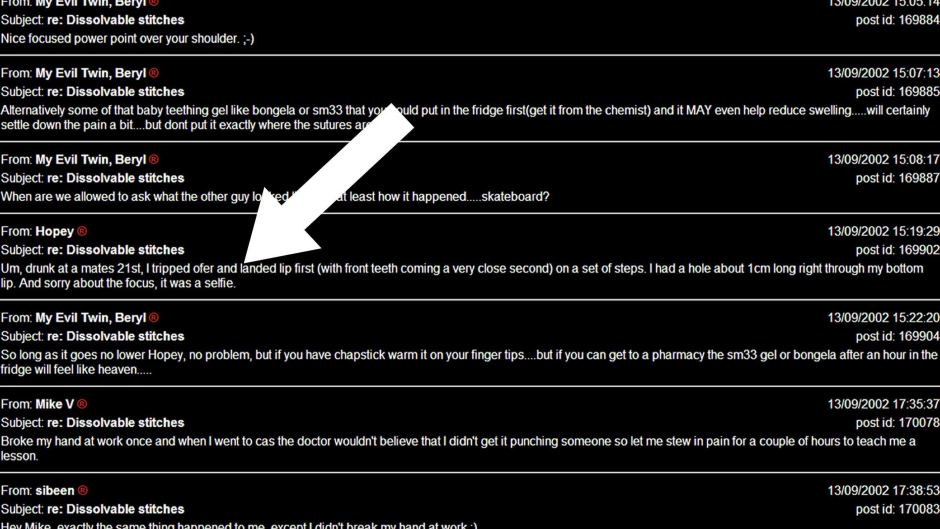Hope expressed genuine puzzlement that his long-forgotten forum post, complete with misspellings, had become international news, along with the photo of his busted-up lip. And he dispelled the idea that he was somehow responsible for the word. "It was not a word I coined. It's something that was just common slang at the time, used to describe a picture of yourself. Fairly simple."
So Hopey didn't coin selfie, but why would everyone think that he did? There is a common assumption that a word can be traced back to a sole identifiable inventor who forged it in a burst of creativity. While this is sometimes the case (think of Lewis Carroll's chortle, or J.R.R. Tolkien's hobbit), historical lexicographers know that far more often, the best we can do is follow the trail of evidence as far back as it takes us without uncovering an originator.
Furthermore, in this case, it's very likely that there was no single moment when the word was created, no Ur-selfie. Instead, as cellphone photography became commonplace more than a decade ago, numerous Australians probably thought to apply the hypocoristic –ie to make selfie. And it is also a good bet that, as is often the case with slang, the word traveled orally before anyone like Hopey thought to type it out in a forum that could be retrieved online by future word-hunters.
The next recorded usage is also from Australia with the term appearing on a personal blog in 2003.
"It seems likely that it may have originated in the Australian context," [Oxford] dictionary editor Katherine Martin said.
"The earliest evidence that we know of at the moment is Australian and it fits in with a tendency in Australian English to make cute, slangy words with that 'ie' ending."
There's barbie for barbecue, firie (or firey) for firefighter and tinnie for a can of beer.

